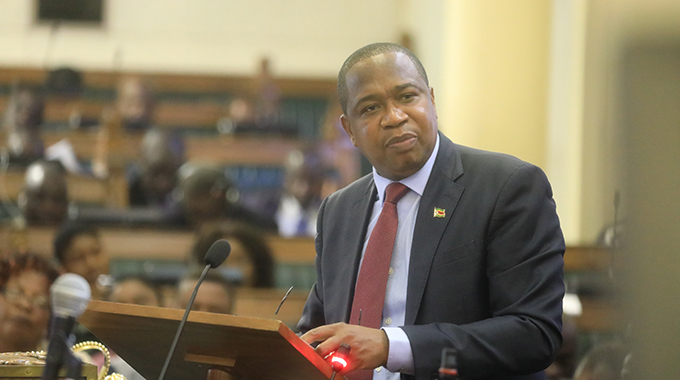Source: 2020 infrastructure budget set at $25bn | The Herald 22 NOV, 2019
Finance and Economic Development Minister Professor Mthuli Ncube Farirai Machivenyika Senior Reporter
Government understands that good infrastructure is a harbinger of big investments and has budgeted $24,7 billion for infrastructure development next year, with resources mobilised from domestic and foreign sources.The budget and the identification of priority infrastructure projects for all economic sectors was compiled during the 2020 Budget Infrastructure Planning and Prioritisation Workshop that was held between the Ministry of Finance and Economic Development, public entities and local authorities in September.
The budgets and the priority projects are contained in the 2020 Infrastructure Investment Programme published by the Ministry of Finance and Economic Development.
The projects identified include those contained in the Transitional Stabilisation Programme and the parliamentarians pre-budget seminar held Victoria Falls.
The 2020 overall capital development outlay amounts to $24,7 billion, with funding being mobilised through the following: Fiscal resources (basically taxes) $12,1 billion; Loan funding $8,8 billion; development partners supprt (foreign aid) $2 billion; statutory funds $723 million; and public entities’ own resources $1,1 billion.
Spending concentrates on essentials. Transport gets the largest share of 21 percent, followed by water and sanitation and health with 17 percent, housing and education with 15 percent, ICTs (9 percent) agriculture (6 percent), energy (3 percent) and the remainder with one percent will follow in that order.
The projects that were identified, selected and prioritised for inclusion in the investment programme, taking account of the following: “On-going projects, with existing contractual obligations; new or ‘shovel-ready’ projects with completed designs and other planning processes ready for implementation with focus on projects that can be completed within the 2020 Budget year;growth enhancing investment projects and economic enablers, with potential to unlock significant private sector investments; projects that address emerging infrastructure gaps, such as Cyclone Idai, and those which threaten the safety and health of citizens; and projects with potential to generate their own cash flows for sustainable delivery of public services.”
The programme also prioritised investments towards maintenance of current assets as inadequate maintenance has often led to far higher rehabilitation costs.
In his remarks, Minister of Finance and Economic Development Professor Mthuli Ncube said the absence of key economic enablers like water and energy were derailing efforts to revive the economy.
“The absence of sufficient and reliable energy supply, for example, is hurting productivity and competitiveness of our products, not to mention the well-being of citizens.
“The same applies to all the critical enablers, such as water provision, transport and telecommunication systems,” he said.
“The path to recovery and growth in our infrastructure will take time, effort and resources.
“The Infrastructure Programme for 2020 sets out the framework for such recovery, including the required institutional reforms targeted at those public entities mandated to manage and deliver public infrastructure assets and services.”
It was critical that Zimbabwe reviewed existing models of financing infrastructure, in light of the limited scope of the national budget, the changing business environment, and new and available innovative financial products.
The Government is keen on private sector investment in infrastructure.
But that requires cash flows, incentives, efficient regulators and utilities ready to charge tariffs that cover costs and ensure customers pay on time
“All infrastructure projects with potential to generate cash flows must, in the main, be funded from the market, with Government only providing incentives and conditions necessary for the private sector to invest and manage infrastructure assets.
“For the private sector to have confidence investing in public infrastructure, sectoral regulatory environments must be stable and predictable, whilst each regulator should have the technical capacities to manage the utilities much more effectively and sustainably.
Furthermore, it is imperative that our utilities start charging cost reflective tariffs, including ensuring that consumers of services timeously pay for consumption, that way, providing capacity for investments in maintenance and new capacities,” Minister Ncube said.
By focusing on quality infrastructure investment, Government hoped to grow the economy in a sustainable way and increase access and inclusion for disadvantaged groups.
Newer Post
Most services back to normal — EcoCash Older Post
Both Houses of Parliament Have Adjourned 
COMMENTS